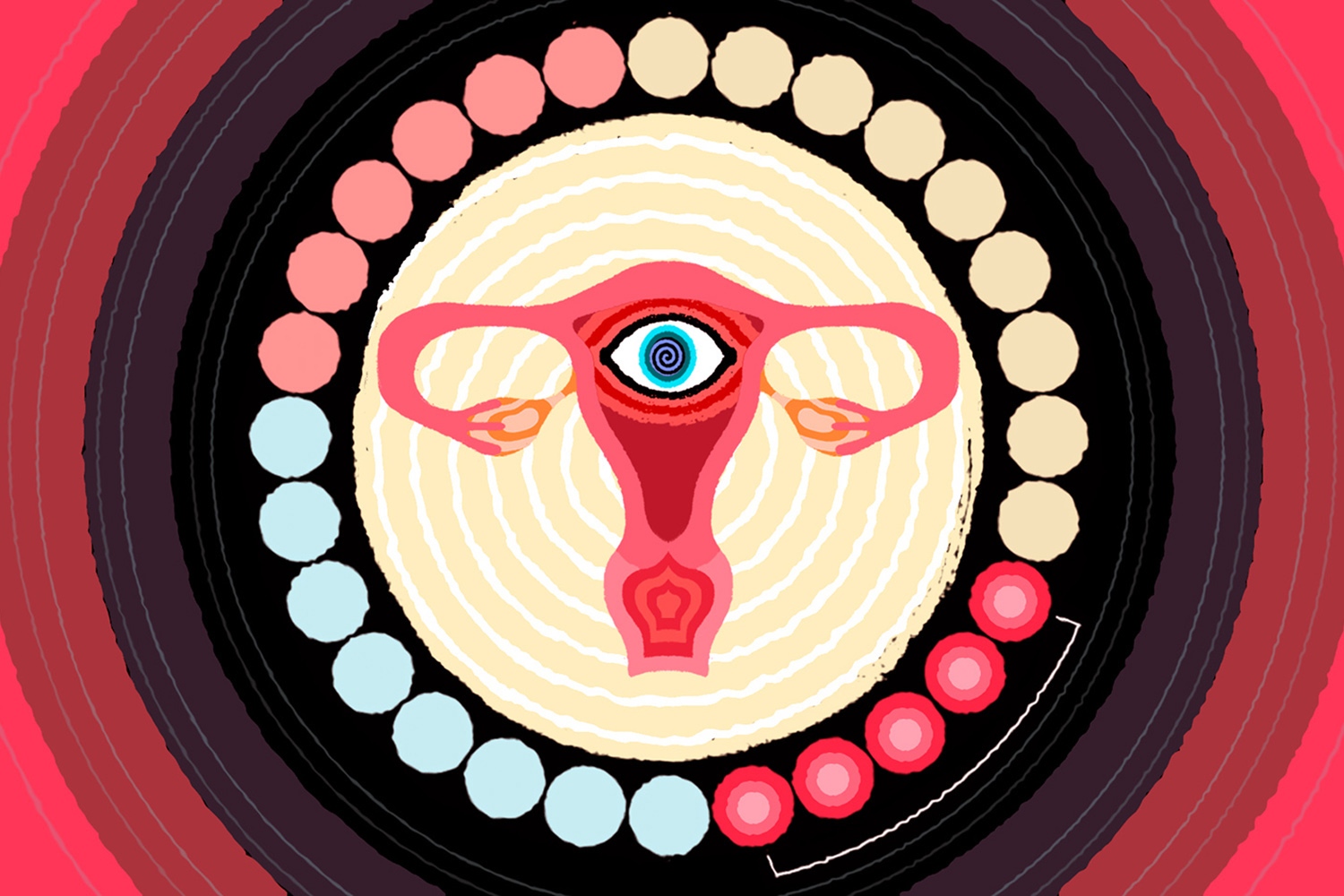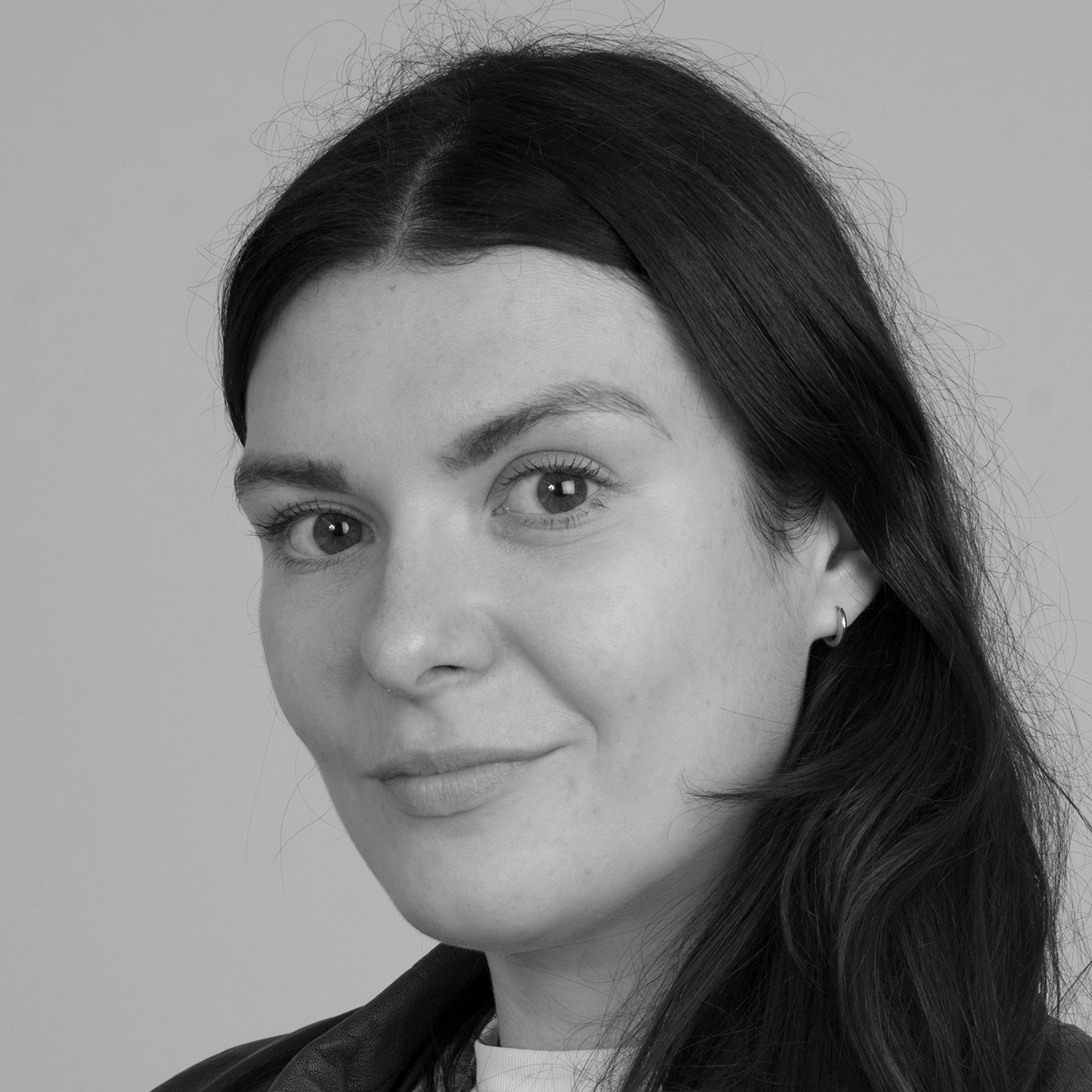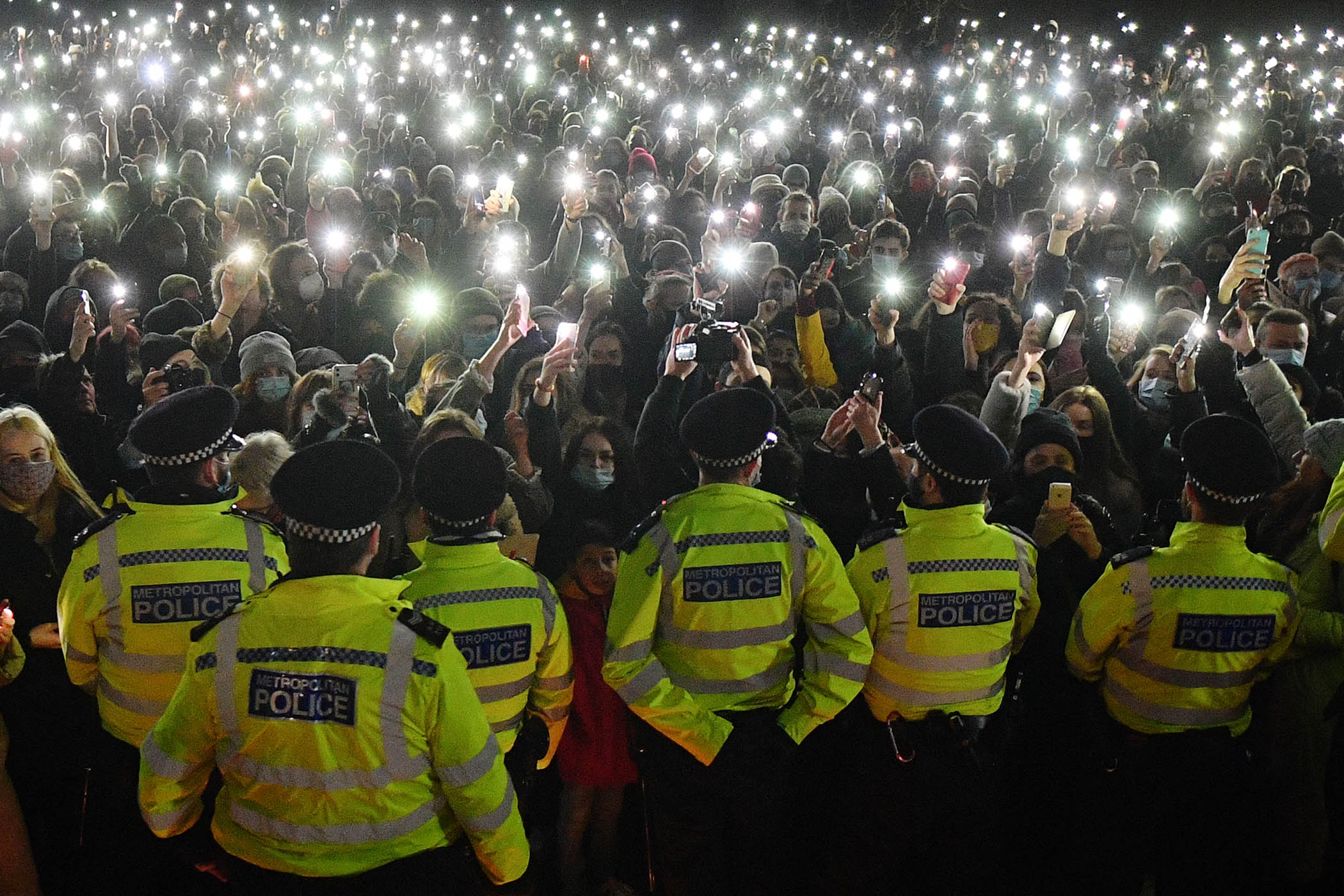Illustration by David Foldvari
A new drug is taking over. It’s affecting your friends, your daughters, your sisters, your mums. Beware. It’s coming for us all, and it’s stronger than anything you’ve heard of before. I’m not talking about MDMA or cocaine or even Ozempic. I’m talking, somehow, about ovulation.
Where once ovulation was a simple and boring thing – one week of the month, slap bang in the middle of the menstrual cycle, when the ovaries release an egg ready to be fertilised – it is now something else entirely. Ovulation has ascended to new heights of cultural relevance. It has become a feeling, an era, an experience, a vibe. Online and offline, ovulation is increasingly being seen and talked about as something synonymous with and inextricable from horniness, sexiness, from having nice hair and being slightly feral around your boyfriend, slightly detached from reality and mental clarity, in a fugue state of feminine fuzzy hormones.
I cannot emphasise this enough – they are out here talking about ovulation like it’s ayahuasca. And by “they”, I mean not just online posters but the great and the good among us. Even the celebrities you might have thought were cool and normal are seated and strapped in on the ovulation train. Last week, Lorde gave a rare interview in which she likened ovulating to some sort of transcendentalism. Speaking to Rolling Stone, she described coming off birth control and said: “I hadn’t ovulated in 10 years. And when I ovulated for the first time, I cannot describe to you how crazy it was. One of the best drugs I’ve ever done.”
I’m wary of this kind of thing. And by “this kind of thing”, I mean an odd, woo-woo, mystic approach to what is just old-school conservative bioessentialism – reducing bodies to nothing more than vessels for whatever stage of the menstrual cycle they happen to be in – for various reasons that are all more sinister than the last. It feels just a few short steps away from saying women are hysterical creatures ruled by their wombs with deep connections to the moon and the waves.
Yet knowing it’s ridiculous doesn’t mean I’m not immune to the hype. Recently a friend complained to me that they were feeling bad about themselves and, like some sort of psychopath, before comforting her my first question was: “No, but wait, are you in your luteal phase? Because then I feel like it doesn’t count.” Why are we all thinking and talking about ourselves like this? It’s telling that Lorde was talking about ovulation in the context of coming off the hormonal contraceptive pill, a decision that she now thinks of, correctly, as a result of “some quasi-rightwing programming”. Because the ovulation-makes-you-crazy lobby are essentially just small-c conservatives in pink clothing. This is the same ideology telling you that putting hormones in your body is unnatural, that it stops you being a “real woman” and that ceasing to do so will make you natural and whole. It’s the voice that says that you shouldn’t have to pay your taxes or even get a job because you’re “just a girl”; one who needs a 6ft 5in boyfriend with a trust fund and a job in finance. It’s a form of Barbified bio-essentialist propaganda, repackaged as Just Girly Thing memes.
It feels a few steps away from saying women are hysterical creatures ruled by their wombs
It feels a few steps away from saying women are hysterical creatures ruled by their wombs
Moral panics and manias do not happen in a vacuum, after all, and the context for ovulation mania is more serious than memes and celebrity puff profiles in glossy magazines would have us believe. It’s not a coincidence that this conversation has become culturally prominent alongside simultaneously plummeting prescriptions for the contraceptive pill. In England, only 188,500 prescriptions for the pill were recorded in 2021, compared with nearly half a million in 2014. In the UK more widely, the number of people using the pill as their main form of contraception fell from 19% in 2018 to just over 11% in 2023.
The pill is, of course, not without its many health issues, but the move away from it has nothing to do with a viable and side-effect-free alternative suddenly being presented to the mass market. Many women who abandoned the pill simply switched to natural-cycle apps, a modern take on the rhythm method. The rhythm method didn’t work for Catholics back in the day and it doesn’t work for anyone else today: abortions after unwanted pregnancies linked to “fertility apps” have surged tenfold in the past five years. (And by the way, these privately owned apps with all your data logged in them can easily be seized if the police believe that the abortion was illegal.)
It isn’t choice that has moved the needle towards being “attuned to our bodies” then, it’s the lack of it. And that’s without ignoring the glaring problem that ovulation mania erases millions of women who don’t menstruate. Speaking from experience, when I lived through long periods (no pun intended) of amenorrhea, this slow shift towards talking and thinking about “real women” as nothing more than vaguely sentient all-natural ovarian systems didn’t exactly make me feel more connected to the idea of womanhood. It just made me feel more alone. And before and after those times, I certainly didn’t want to suddenly start pretending that ovulation was like taking half a pinger.
The sad thing about it all is that this could have been a good thing, or at least a slightly helpful thing. This could have been a way to normalise historically overlooked reproductive health issues such as PMS, premenstrual dysphoric disorder, endometriosis or polycystic ovary syndrome. It could have been a way for us to realise we should eat differently or exercise differently or rest differently. But we can’t have nice things, and so look at what we’ve done to it. We’ve made it annoying and right wing. Listen, maybe you’re just not a girl. Maybe you’re not in your luteal phase, maybe you’re just in a bad mood – and that’s allowed. Maybe it’s not ovulation, maybe you’re just being a bitch!
Newsletters
Choose the newsletters you want to receive
View more
For information about how The Observer protects your data, read our Privacy Policy



